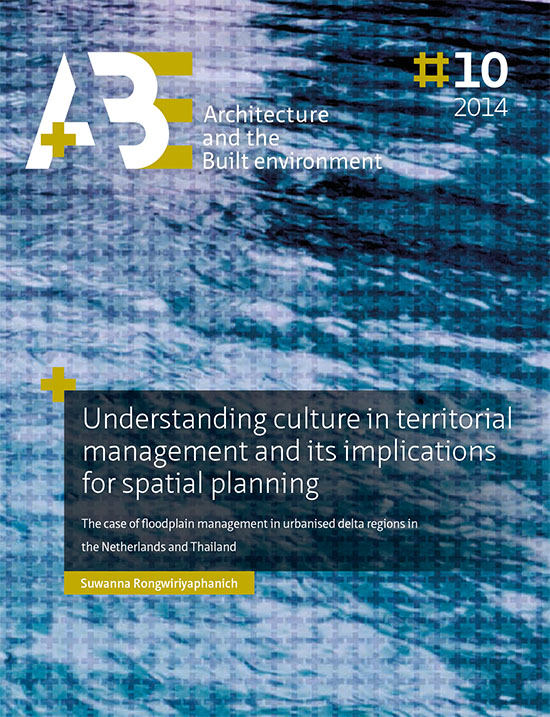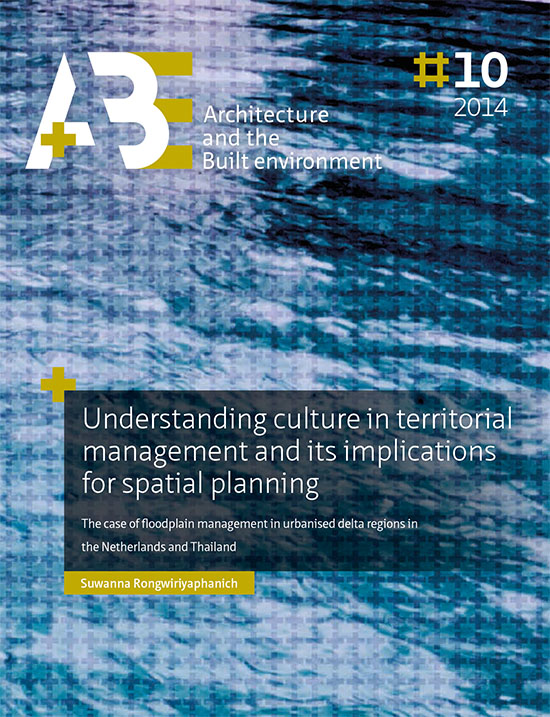- Engels
- Study
- nature & science
- UNDERSTANDING CULTURE IN TERRITORIAL MANAGEMENT AND ITS IMPL
RONGWIRIYAPHANICH, SUWANNA
UNDERSTANDING CULTURE IN TERRITORIAL MANAGEMENT AND ITS IMPL
39,95incl BTW
Vertrouwd sinds 1927
Persoonlijke aandacht en advies
Vanaf 17,50 gratis verzenden NL & BE
Meer dan 150.000 artikelen online
Omschrijving UNDERSTANDING CULTURE IN TERRITORIAL MANAGEMENT AND ITS IMPL
Previous experiences have shown that the implementation of planning policy does not always lead to the originally intended territorial management outcomes. This issue?is particularly crucial when policy ideas, institutions, models and programmes are
transferred into places with different cultural settings without adaptations (Knieling and Othengrafen 2009b; Sanyal 2005). These unexpected consequences in planning practice and management outcomes have brought a significant amount of attention to t
he importance and roles of culture on shaping decision-making in territorial management process and determining transferability of a policy (Friedmann 2005a, 2005b; de Jong and Mamadouh 2002; Sanyal 2005; Ostrom 2005a; Knieling and Othengrafen 2009b)
. However, conceptual frameworks that seek to understand the roles of culture and its implications for spatial planning are still rather limited.
This study presents and applies an integrative conceptual framework which is used?to explain ho
w culture, planning policy and territorial management outcomes are interrelated, and what the implications are for spatial planning. The framework integrates relevant theories and ideas from anthropology, organisational management and political scien
ces to understand influences of culture on spatial planning. The integrative framework suggests a way of characterising territorial management in the form of ideal types. This helps simplify cultures regarding territorial management to make them comp
arable. It enables an analysis of ''cultures'' that includes a broader scope of culture than existing frameworks that focus primarily on ''planning cultures'' expressed in forms of planning systems, organisations and instruments. This broader scope i
ncludes also the implicit expressions of culture in informal forms, such as ideas, customs and social behaviours shared by involved actors in the management of a given territory.
The framework also offers two analytical perspectives to inves
tigate whether culture is an important element (or context variable) explaining planning practices and territorial management outcomes in different settings. These perspectives are the analysis?that assumes a stable state of culture (a synchronic per
spective) and the analysis that considers culture as dynamic and interrelating with other context variables (a diachronic perspective). Findings derived from the analysis of the case studies based on these two perspectives help draw theoretical concl
usions about how planners may deal with culture in order to improve planning practices.
transferred into places with different cultural settings without adaptations (Knieling and Othengrafen 2009b; Sanyal 2005). These unexpected consequences in planning practice and management outcomes have brought a significant amount of attention to t
he importance and roles of culture on shaping decision-making in territorial management process and determining transferability of a policy (Friedmann 2005a, 2005b; de Jong and Mamadouh 2002; Sanyal 2005; Ostrom 2005a; Knieling and Othengrafen 2009b)
. However, conceptual frameworks that seek to understand the roles of culture and its implications for spatial planning are still rather limited.
This study presents and applies an integrative conceptual framework which is used?to explain ho
w culture, planning policy and territorial management outcomes are interrelated, and what the implications are for spatial planning. The framework integrates relevant theories and ideas from anthropology, organisational management and political scien
ces to understand influences of culture on spatial planning. The integrative framework suggests a way of characterising territorial management in the form of ideal types. This helps simplify cultures regarding territorial management to make them comp
arable. It enables an analysis of ''cultures'' that includes a broader scope of culture than existing frameworks that focus primarily on ''planning cultures'' expressed in forms of planning systems, organisations and instruments. This broader scope i
ncludes also the implicit expressions of culture in informal forms, such as ideas, customs and social behaviours shared by involved actors in the management of a given territory.
The framework also offers two analytical perspectives to inves
tigate whether culture is an important element (or context variable) explaining planning practices and territorial management outcomes in different settings. These perspectives are the analysis?that assumes a stable state of culture (a synchronic per
spective) and the analysis that considers culture as dynamic and interrelating with other context variables (a diachronic perspective). Findings derived from the analysis of the case studies based on these two perspectives help draw theoretical concl
usions about how planners may deal with culture in order to improve planning practices.
Specificaties
- MerkBK Books
- GroepEXACTE WETENSCHAP (910)
- Barcode9789461863478
- LeverstatusActief
Reviews
0.0/5.0
Gemiddelde uit 0 reviews
Meest behulpzame reviews
Nog geen reviews geschreven


